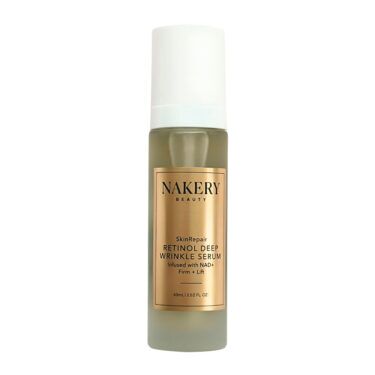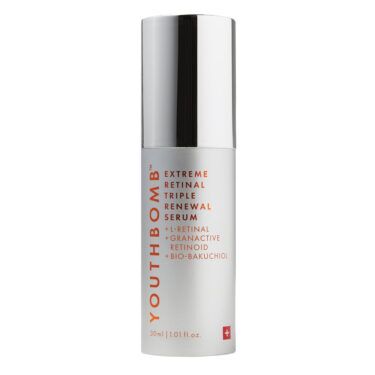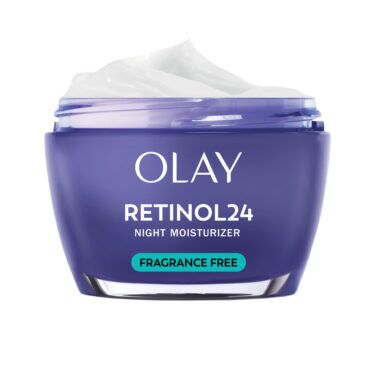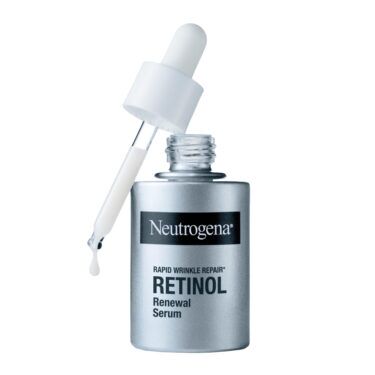Although it’s thought of one of many premier skin-care components for tackling indicators of growing old, retinol isn’t for everybody. It’s no secret that many individuals shrink back from the vitamin-A spinoff (an over-the-counter retinoid obtainable in several strengths), significantly these with simply irritated pores and skin sorts. “Retinol can be intimidating because of the potential dryness or irritation it can cause, especially for sensitive skin. But with the right approach, it can fit beautifully into almost any routine,” says aesthetician Amy Peterson, founding father of skin-care model Lenox and Sixteenth. Chapel Hill, NC dermatologist Sue Ellen Cox, MD agrees that there’s warning round retinol. “This ingredient involves an adjustment period that many people aren’t up for,” she provides. “Side effects like purging, flaking and redness can be a huge deterrent.” However, regardless of potential for irritation, consultants like Dr. Cox largely see retinol because the gold customary in an anti-aging routine. And, with forward-thinking formulation working to cut back retinol’s damaging attributes, even delicate pores and skin can profit from the suitable retinol routine.
The Retinoid Household Tree
For retinoids to work in our pores and skin, they need to be transformed to retinoic acid, the lively type of vitamin A that our pores and skin cells immediately join with. The weaker the retinoid system, the extra steps it takes to transform to retinoic acid.
StepsStrengthRetinoidsAvailable OTCFormula3 STEPS to transform to retinoic acidLow StrengthRetinyl Esters (Retinyl Palmitate, Acetate, Linoleate, Propionate)This retinoid binds retinol to fatty acid for stability and fewer irritation, however will not be as potent or efficient.2 STEPS to transform to retinoic acidMedium StrengthRetinolAvailable over-the-counter, it is available in formulations as much as 1 % to deal with pimples and indicators of growing old.1 STEP to transform to retinoid acidHigh StrengthRetinaldehyde (Retinal)This retinoid converts within the pores and skin sooner than retinol, making it a faster and stronger possibility. Skilled Perspective
New York dermatologist Marina Peredo, MD explains that beneath the large umbrella of retinoids (vitamin A derivatives), retinols are the milder possibility. “If we’re talking about prescription-strength retinoids, Retin-A (tretinoin) is often used to tackle comedonal acne with formulas that are more potent, and yes, they can be more irritating,” she says. “Retinol is chemically different; it’s not as strong, or as irritating.”
Most skin-care consultants view retinol as a superb possibility of their “aging gracefully” toolkit. “As an ingredient that has been extensively studied over time there is evidence of improvement in such conditions as acne, fine lines and sun damage,” explains New York dermatologist Jody Levine, MD. Peterson provides that retinol can be formulated to fade darkish spots and maintain pores clear.
New York dermatologist Dr. Muneeb Shah says retinol additionally checks each field consultants search for in a skin-care ingredient. “Effective ingredients need to be able to penetrate the skin, have a known mechanism of action that can produce the intended result, and have clinical human studies to prove it works in real life,” he explains. “Retinol checks all those boxes by binding to retinoic acid receptors and having over 50 years of clinical experience proving it works.”
Service Report: Retinol in Motion
It’s that binding course of that makes retinol work. “Retinol needs to be converted to retinoic acid by enzymes within the skin,” explains beauty chemist Kelly Dobos. “Then, retinoic acid binds to specific receptors in the nucleus of cells, which not only influences the production of collagen and new skin cells, but also the maturation and shedding of older skin cells.”
As cells are prompted to make new collagen and pores and skin cell turnover will increase, the result’s enchancment within the look of pores and skin. That’s a giant deal, contemplating each of those processes decelerate as we become old. “In our 20s, the process of skin cell turnover takes about 28 days, but by the time we’re in our 40s, it takes about 40 to 50 days,” Dobos explains. “The process of accelerated skin renewal leads to smoother texture, a more even skin tone and a reduced appearance of fine lines and wrinkles over time.”
And with a lot medical knowledge to again it up, retinol isn’t going anyplace. “Many trendy ingredients come and go, but retinoids, including retinol, are a class of ingredients you can rely on,” Dr. Shah says.
Are You Really Too Delicate?
In fact, retinol isn’t for everybody. “Sensitive skin can react with redness, dryness, flaking or a compromised skin barrier,” explains New York dermatologist Marisa Garshick, MD. “This is especially common with those who start to use high-strength or non-buffered formulas too quickly.”
However what’s “sensitive skin,” and do most of us actually have it? In response to a report revealed in Frontiers Medical Journal, about 70 % of adults globally report having delicate pores and skin, which the report describes as “unpleasant sensory responses to stimuli that should not provoke such sensation.”
If that sounds a bit imprecise, it’s as a result of it sort of is. “I don’t think we are largely talking about sensitive skin here,” Dr. Peredo says. “We are talking about reactive and overprocessed skin. The skin-care market is oversaturated; we often use too many actives, and even children are following multistep skin routines. Altogether, that is a recipe for irritation.”
Dr. Levine provides, “I think that increasing skin sensitivity— whether from over-exfoliation, stress, pollution or too many products at once—makes the retinol conversation more complex. However, rather than turning away from retinol altogether, I think the future lies in education and personalized care. The goal is to use it more mindfully and sometimes less frequently, in harmony with the skin rather than in battle with it.”
Retinol Completed Proper The Components
In response to Dobos, there are some things formulators can do to attenuate the potential for retinol-caused irritation. “Encapsulating retinol in liposomes can slow its release, and it also protects the retinol, which improves stability,” she says. “Adding ceramides to a formula can help support the skin barrier to reduce dryness and flaking. Anti- inflammatory ingredients like bisabolol and allantoin can calm the skin to reduce redness and irritation.”
In case you are new to retinol, it additionally helps to start with a lower-strength system. “If you have very sensitive skin, you can start with a lower dose—0.1 percent retinol— and increase as tolerated,” says Dr. Shah. “Or, use products with encapsulated, slow-release retinol.”
The Routine
It’s also possible to keep away from the worst of the “retinol uglies” by preserving your routine low and gradual. “For those with sensitive skin, I suggest using retinol just one or two nights a week at first,” Peterson says. “Layering a rich moisturizer on top of the retinol in the evening is also essential to support your skin as it adjusts.”
Houston dermatologist Jennifer Segal, MD provides {that a} gradual introduction to retinol must also be paired with a quite simple and mild skin-care routine in order that the retinol could be tolerated.
The Alternate options
Whereas beginning low and gradual can enhance your danger for irritation with retinol, there might also be occasions when a swap is required. “When retinol causes irritation, especially during colder months or when used with exfoliants, alternatives like bakuchiol or peptides can be helpful for ultrasensitive skin,” provides Dr. Garshick.
And naturally, there are nonetheless these for whom retinol will not be a match. If true pores and skin sensitivity is a priority, Peterson says you must search for good alternate options that present the radiance and resurfacing advantages of retinol, however with out the irritation.
Superior Formulation Redefining Retinol
With stabilized, encapsulated retinoid formulation that work deeper, sooner and with much less irritation, that is the brand new age of retinol.
1 / 4
Pushed by Accelerated Retinol SA, this serum works quick to resume pores and skin, even tone and scale back the looks of advantageous traces and wrinkles.
2 / 4
Microencapsulated retinol permits retinol to work deeper alongside an NAD+ advanced that preserves pores and skin cells, whereas ceramides and squalane soothe and assist the pores and skin barrier.

3 / 4
With outcomes backed by medical trials, this potent serum combines a number of retinoids in a mild, well-balanced system that helps flip again the clock on indicators of growing old

4 / 4
Retinol is paired with hydrating niacinamide and glycerin on this cushiony, snug, deeply nourishing cream that reveals smoother pores and skin after only one evening of use.










